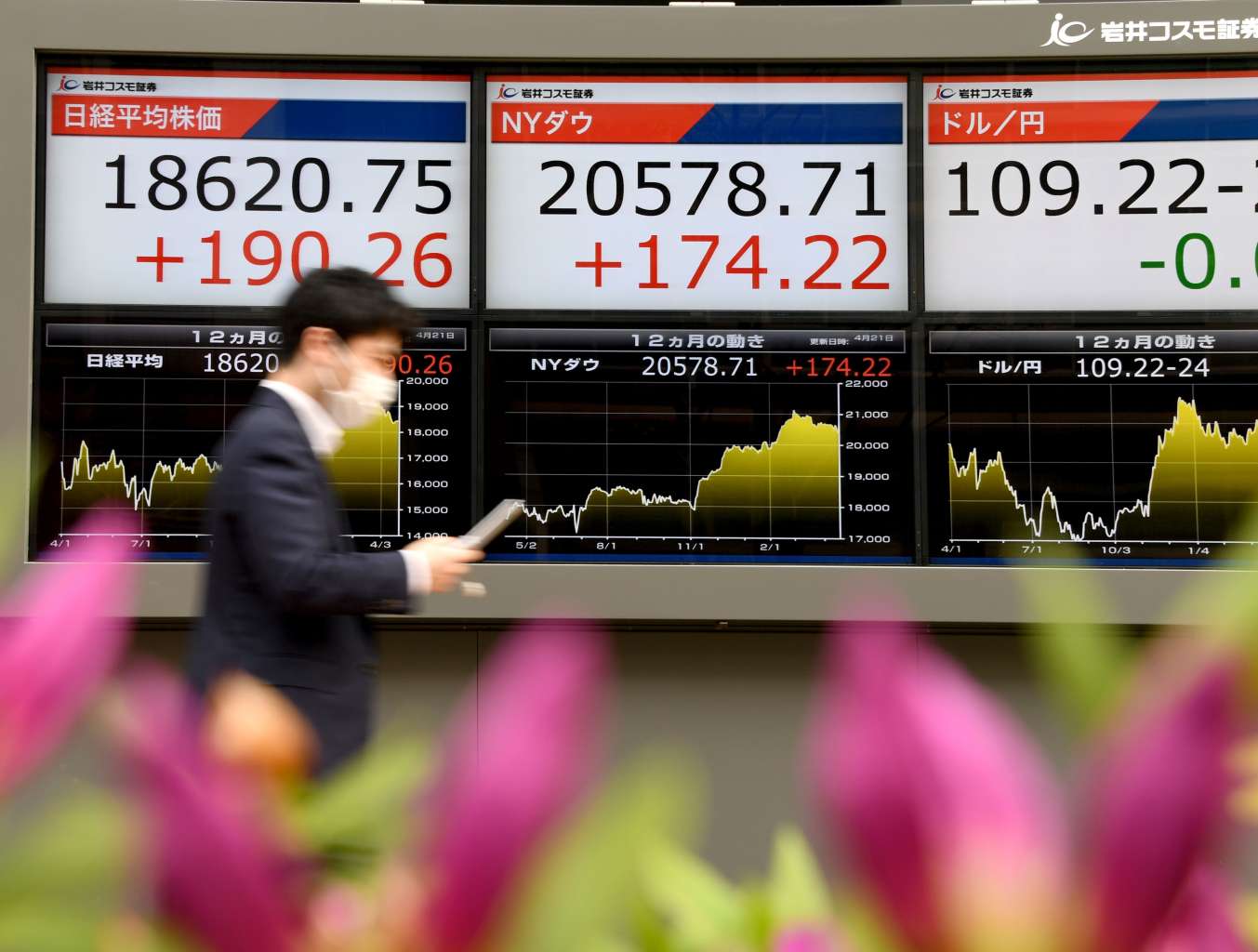Asian stocks fall for 3rd day as cracks in commodities widen
Sign up now: Get ST's newsletters delivered to your inbox

An electronics stocks indicator in Tokyo displaying the closing rate of the Tokyo Stock Exchange.
PHOTO: AFP
Follow topic:
HONG KONG (REUTERS) - Asian stocks declined for a third consecutive day on Friday (May 5) as fresh falls in commodities raised concerns about the health of the global economy, though the euro bucked the broad weakness on receding concerns about France's presidential election.
MSCI's broadest index of Asia-Pacific shares outside Japan fell 0.4 per cent on Friday and was trading at its lowest level since April 25.
Hong Kong led regional losers with losses of 0.8 per cent in opening trades. Australian shares fell 0.5 per cent with metals and mining related stocks leading the decline.
Japan and South Korea markets are closed for trading.
"The falls in commodities prices definitely tell us there is some kind of a moderation under way in the global economy and I would advise taking some money off the table at these levels," said Cliff Tan, East Asia head of global markets research at Bank of Tokyo Mitsubishi UFJ in Hong Kong.
In Australia, big miners Rio Tinto, BHP Billiton and Fortescue Metals Group lost as much as 1.68 per cent, 2.75 per cent, and 3.22 per cent, respectively.
On Friday, Chinese iron ore futures fell nearly 7 per cent in opening trades after tumbling 8 per cent on Thursday on concerns that global commodity demand may fall sharply in the face of record supplies. Copper held near four-month lows, following its biggest one-day drop in 20 months on Thursday and analysts predicted further weakness. Three-month copper on the London Metal Exchange gained 0.3 per cent to US$5,555 a tonne.
Oil plunged to five-month lows on Thursday amid record trading volume in Brent crude, as Opec and other producers appeared to rule out deeper supply cuts to reduce the world's persistent glut of crude.
"The rout in markets is unlikely to turn around quickly," ANZ strategists wrote in a daily note. "Oil markets face further potentially bearish data, with the US rig count likely to add to the bearishness."
The weakness in commodities washed over to stocks, countering some fairly solid earnings reports and some cautious optimism about US President Donald Trump's reform plans after the US House of Representatives passed a healthcare overhaul.
Traders also remained cautious ahead of Friday's US government payrolls report, following March's underwhelming 98,000 figure. Economists on average expect 185,000 jobs were created in April.
Futures traders are pricing in a 79 per cent chance of a June rate hike, up from 68 per cent a week earlier, according to the CME Group's FedWatch Tool.
That hurt US Treasury notes with yields on benchmark 10-year notes yielding 2.35 per cent, near its highest since April 10, and up from 2.31 per cent late on Wednesday.
The euro settled near a six-month high against the US dollar hit in the previous session at US$1.09735 after centrist Emmanuel Macron consolidated his position to win France's presidential race against anti-EU candidate Marine Le Pen.
Beyond Sunday's vote, traders will be looking to the European Central Bank for clues on any plans to reduce its bond-buying programme.
Prospects of higher US interest rates dampened demand for gold with the safe-haven asset changing hands at US$1,228 per ounce.

